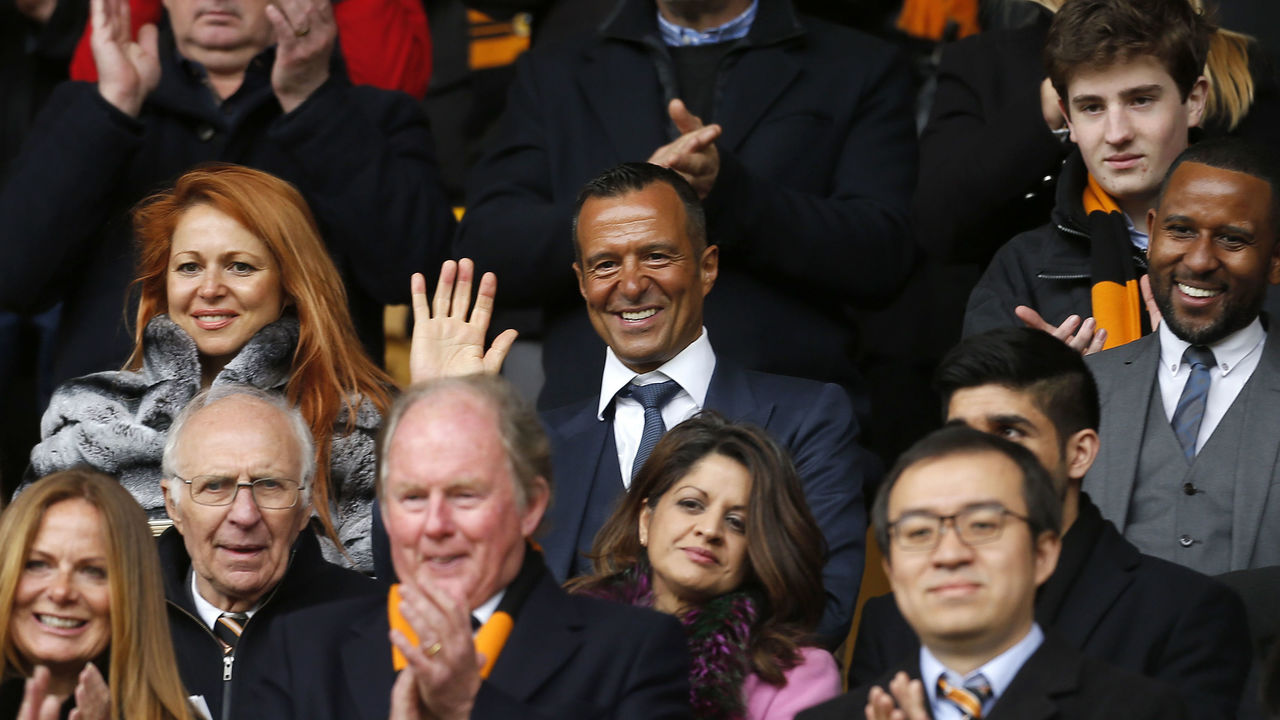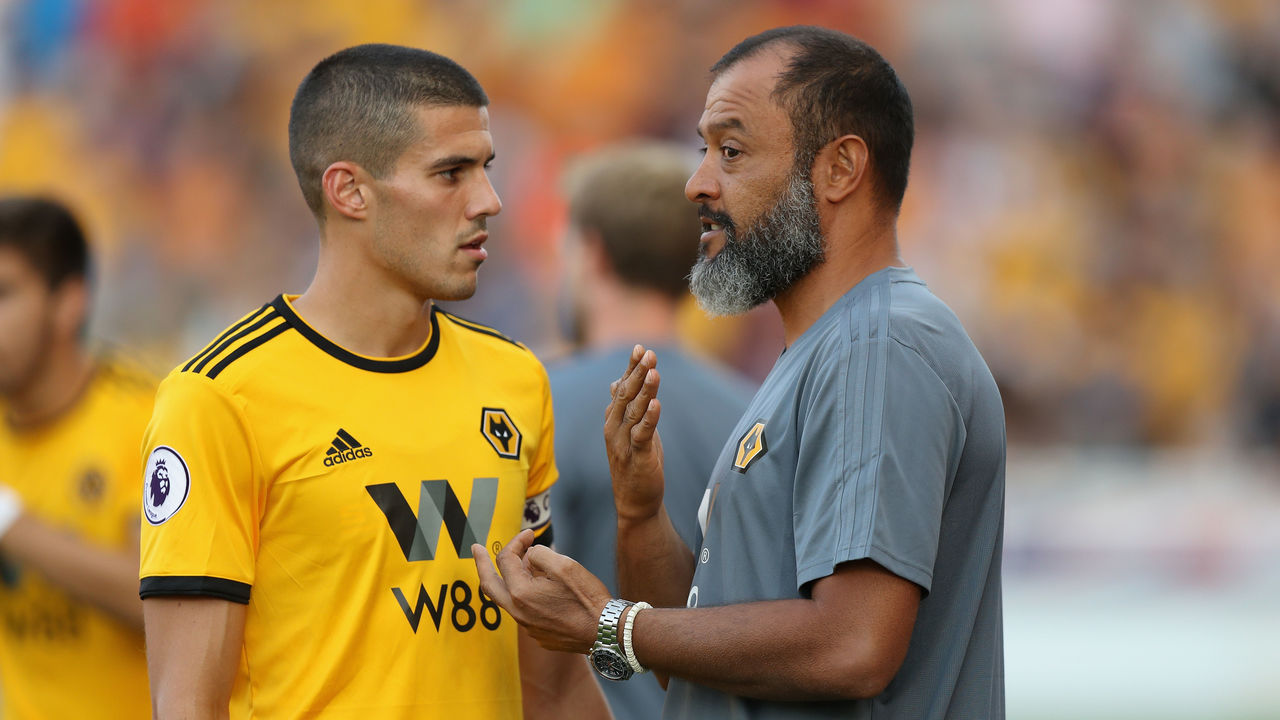Portugal-infused Wolves can take Premier League by storm
Something remarkable is occurring at Molineux.
Since the appointment of Nuno Espirito Santo in the summer of 2017, Wolverhampton Wanderers have remodeled themselves in extensively Portuguese fashion. The former Porto manager brought in Ruben Vinagre, Ruben Neves, and Diogo Jota last year, and a team led by the latter pair's attacking abilities did not relinquish top spot in the Championship from late October onward, ultimately securing a return to the Premier League after six years away by winning the second tier with 99 points.
This summer, Nuno has stepped up his game. As well as making the loan deals of Jota and Vinagre permanent, Wolves have added current Portugal No. 1 Rui Patricio and vastly experienced teammate Joao Moutinho amongst a raft of signings. That pair, both of whom won Euro 2016 with the nation, add a combined 186 Portugal caps and heaps of top-level European experience to the starting XI.
Nuno Espirito Santo (65.3%) has the highest win percentage of any Wolves manager in the club's history.
— Squawka Football (@Squawka) July 10, 2018
He has won 32 of his 49 games. 👏 https://t.co/jOMMQgojoe
Set up for success
If Wolves' plethora of stars from a pocket of the Iberian Peninsula weren't enough to promise bright things, their coach's approach to the game mustn't be overlooked. Nuno has barely deviated from a 3-4-3 system which relies on deep-lying holding midfielders and high-energy full-backs, and can turn into a 5-4-1 or a 5-3-2 when on the back foot or facing clearly superior teams.
That free-flowing style, favored by the likes of Antonio Conte's Chelsea, can be a help or a hindrance in the top flight, but Wolves possess the quality of player necessary to succeed in that formation, particularly given they now boast Moutinho and Neves as the midfield double pivot. Aside from Nuno's contingent of compatriots, signings such as versatile full-back Jonny and last season's loanee Willy Boly only strengthen the system, although more central defensive reinforcements would be wise.
Related - Report: Wolves target Rojo as Manchester United prepare Maguire bid
The other common denominator amongst these deals has been the facilitator in the shadows. 'Super-agent' Jorge Mendes is perhaps these days most famous for representing the ultimate Portuguese star, Cristiano Ronaldo - a touch out of Wolves' price range - but also boasts as clients: Moutinho, Patricio, Neves, Helder Costa, and, well, every Portuguese Wolves player under the sun, not to mention Nuno himself. His relationship with the club as an adviser to Chinese conglomerate owner Fosun was ruled in April to be in compliance with English Football League regulations, and with Mendes' powers of attraction, Wolves may not yet be done in their quest to build a Portugal B team. Recent reports suggest Inter cast-off Joao Mario and Milan striker Andre Silva are the next players on the ever-beeping Nuno-Mendes radar.

Even without that duo, Wolves will have their eyes on more than mere survival - they will want to be the latest example of a new Premier League arrival punching above expectations. But what are some historic benchmarks for ambitious promoted sides such as Nuno's?
High standards to match
Newcastle United, 1993-94
The benchmark was set by Newcastle upon their arrival in the new Premier League in 1993. The Magpies had swept all before them in Division One the previous season and re-signed former hero Peter Beardsley as the crowning jewel. Beardsley and Andy Cole contributed 55 of their side's 82 Premier League goals that year as Kevin Keegan's 'Entertainers' dazzled on their way to a remarkable third-place finish. Only Nottingham Forest (coincidentally, the following year) have matched that position as a promoted side.
Sunderland, 1999-00
Sunderland won the second tier by 18 points in 1999 to return to the big time, but few could have predicted how well Peter Reid's side would adapt. Suggestions Kevin Phillips, who had just enjoyed another prolific season and earned a first England call-up, may struggle in the top flight were soon banished; the then-26-year-old would score 30 Premier League goals in 36 games, winning the British and European Golden Boot. Along with towering partner Niall Quinn, he propelled the now-third-tier club to finish seventh for two seasons in a row after promotion.
Manchester City, 2002-03
Keegan appears to be a common theme. Nearly a decade after his Newcastle side thrilled, he won promotion with a City team unrecognizable from their contemporary star-studded side by playing a similar brand of vibrant football. He then spent £18 million on Paris Saint-Germain pair Nicolas Anelka and Sylvain Distin; Anelka and fellow summer signing Marc-Vivien Foe netted 23 times between them, as City entertained on the way to finishing ninth - their highest top-flight position for a decade at the time.

Wolves, 2018-19?
It's hazardous work predicting the fortunes of a promoted side, particularly one built on a foreign manager and signings from abroad. But, with a charismatic manager and a clear transfer policy in place, it's unsurprising Wolves are being tipped to make a big splash, both with their footballing style and their results. Newcastle and Co. set a high standard in a different era, but Wolves' personnel and playing style could make them one of the most fascinating newly promoted teams the Premier League has seen since its inauguration in 1992.